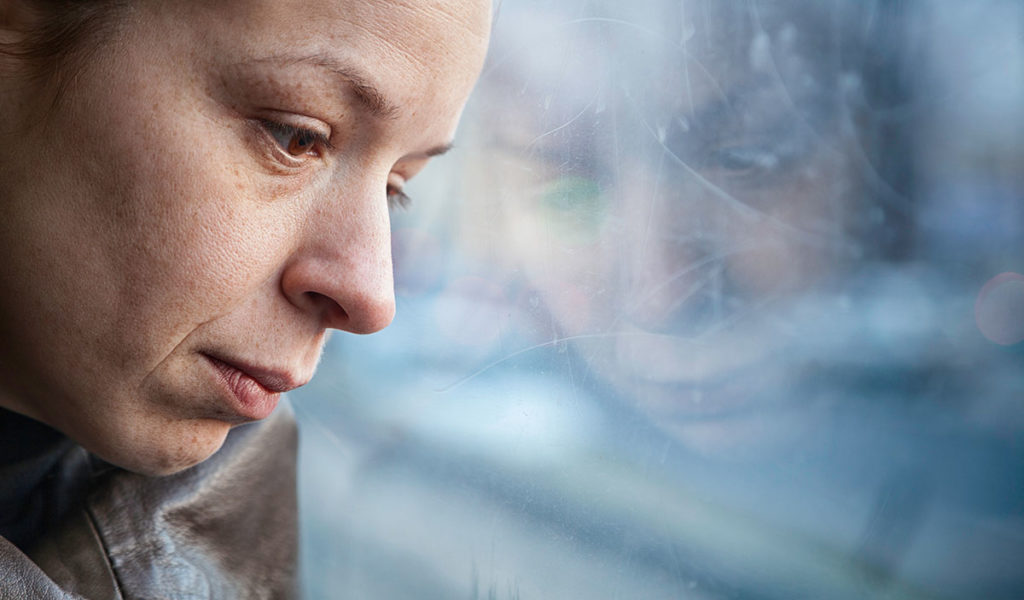Read the latest and greatest from our team
of incredible specialists.

Beach House Recovery Center » Blog » Relapse Self-Talk During the Coronavirus Outbreak
When you’re working on your recovery, the risk of relapsing undoubtedly looms large in your mind. You may be worrying about undoing the hard work you did in detox and treatment, or wondering whether a relapse means you’ll have to go through rehab again.
Returning to drugs or alcohol after a period of abstinence doesn’t mean you have failed with your recovery goals, but it is far less challenging to maintain your sobriety if you don’t succumb to your cravings in the first place. However, with coronavirus causing sky-high levels of anxiety and uncertainty, you may find yourself feeling more tempted to engage in self-destructive behaviors such as drinking and drug use. Here’s how to recognize and avoid relapse self-talk in these unpredictable times.

We all have an inner voice. In active addiction, however, the dialogue you have with yourself is often unhelpful and downright harmful. An addict’s one-way conversation can become a convoluted series of justifications for continued drinking or drug use, despite the obvious adverse effects it is having on their life.
You may recognize thoughts such as, “I’m in control and can quit anytime I like,” or “I can’t relax and unwind without drinking.” These are only two examples of the type of self-talk that contributes to continued substance abuse. Unfortunately, getting sober doesn’t automatically shift your inner dialogue to a positive one. In recovery, you may still find intrusive or dishonest thoughts crossing your mind, like, “It’s OK if I only have one.”
One of the most insidious things about negative self-talk is that it often escapes unchallenged. Listening to a constant barrage of this can leave you feeling depressed and unmotivated to reach your goals — the more you tell yourself you can’t do something, the more likely you’ll be to believe it.
While an evidence-based treatment program can help you learn to manage your addiction by providing you with relapse prevention tools, completing rehab is only the beginning of your sobriety journey. Staying substance-free requires hard work and daily diligence. Here are some relapse prevention strategies to apply during and after this pandemic.
Your inner voice can be sneaky. It can tell you things like, “You should give up; you’ll never be able to do this.” This kind of self-talk can convince you that you’re powerless to regulate your behavior. It chips away at your resolve and makes you feel unworthy of the freedom associated with recovery. Instead of giving in, counteract this negativity by saying to yourself, “I’ve come this far because I deserve to feel healthy, happy and good about myself. I can, and will, see this through.”
When you started your recovery process, you probably didn’t anticipate the circumstances we currently find ourselves in. If you’re feeling isolated or bored in self-quarantine, you might be uniquely vulnerable to thoughts like, “Nobody could blame me for having a drink in this situation.” At first, this form of self-talk can seem reasonable. After all, coronavirus has turned most aspects of your daily life upside down.
If you’re experiencing these types of self-defeating thoughts, now is an ideal time to revisit your recovery goals and review why your sobriety is important to you. Think about all the progress you’ve made and the lessons you’ve learned along the way. Is it worth turning your back on those?
When negativity strikes, your best strategy may be to get out of your head and talk to a positive person who understands your sobriety goals, who doesn’t engage in substance use and who supports your new lifestyle. Have a list of people you can contact if times are tough. Consider setting up a video chat if social distancing prohibits you from seeing them in person.
At Beach House, we share your concerns about staying healthy in the face of the COVID-19 outbreak. That’s why we have taken extensive steps to keep our entire campus coronavirus symptom-free. We employ 17 housekeepers who sanitize all high-touch surfaces such as doorknobs and light switches every 30 minutes. Every day, our leadership team reviews the guidelines set forth by the CDC and implements new measures, as necessary, to keep our staff and residents safe.
Failing to address your addiction is a recipe for heartache and loss. Contact our admissions advisors today to learn how we can help you declare your independence from substance abuse.
Whether you’re researching for yourself or a loved one, Beach House can help. We understand that this is a serious time in your life and that the treatment center you choose matters. We want you to feel comfortable and empowered to make the right decision for yourself, a friend, or a family member. This is why a counselor is waiting and available to answer your questions and help put your mind at ease regarding the next steps. Many of the staff at Beach House have walked in your shoes. If you feel you’re ready or want more information about how to help a loved one, we can help today. You can also learn why we are voted the #1 rehab for addiction treatment in Florida.
We accept most major insurance plans and can verify your benefits quickly and confidentially.
We’re committed to helping you access the care you need, our admissions counselors can guide you through your coverage options and available resources.





"*" indicates required fields